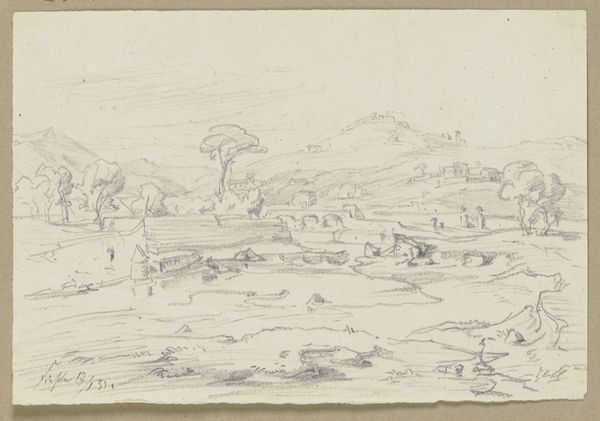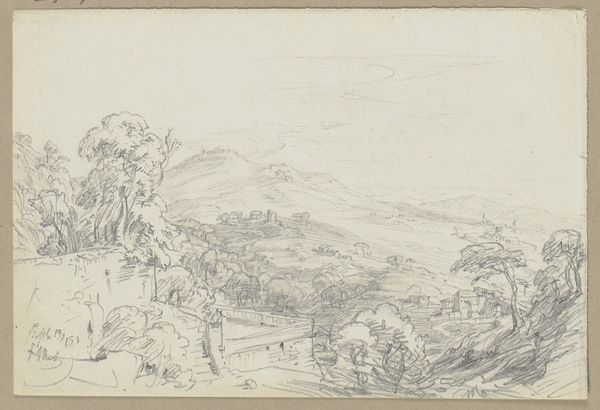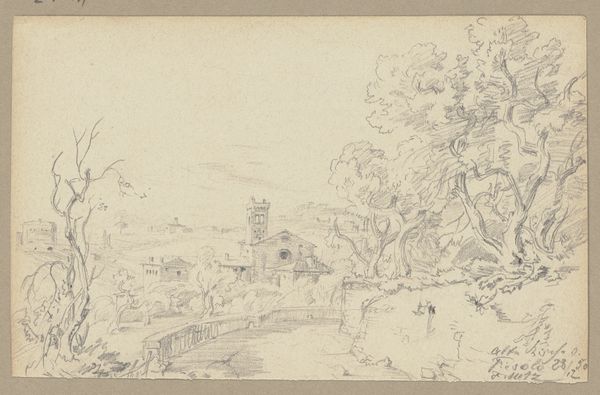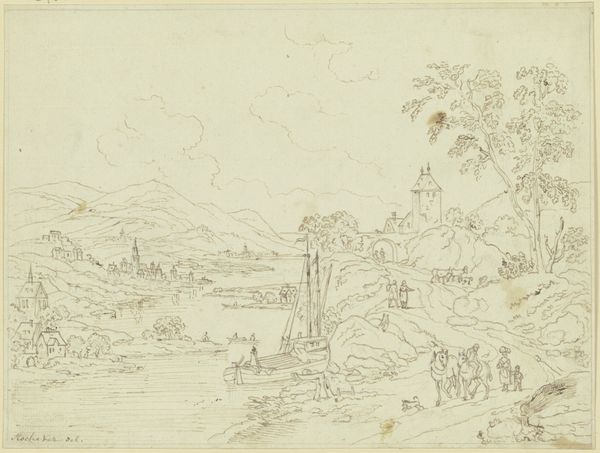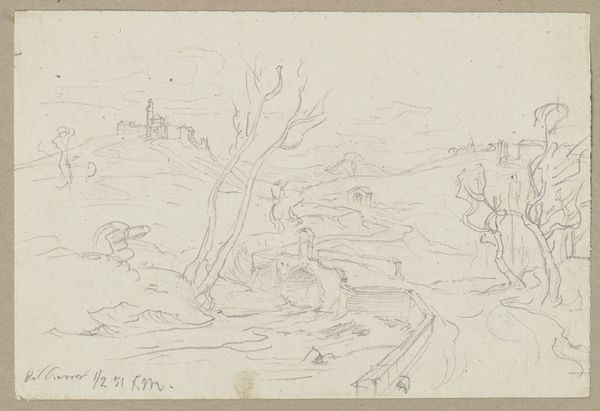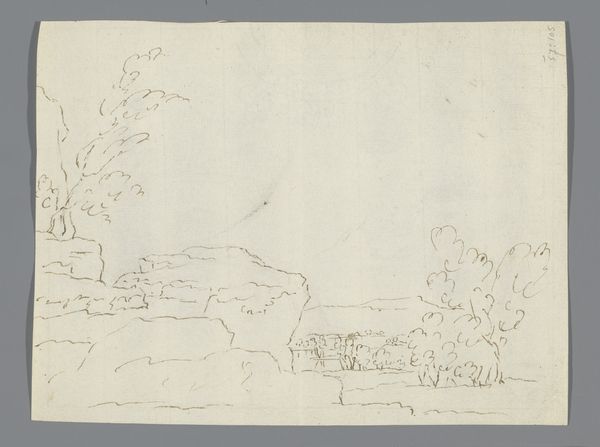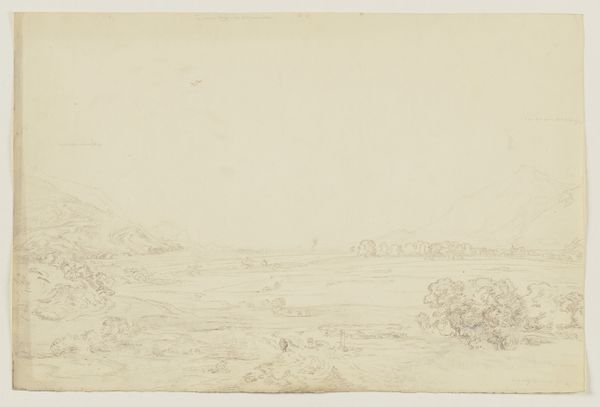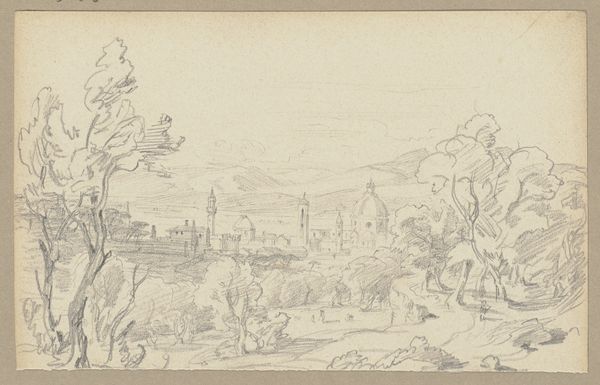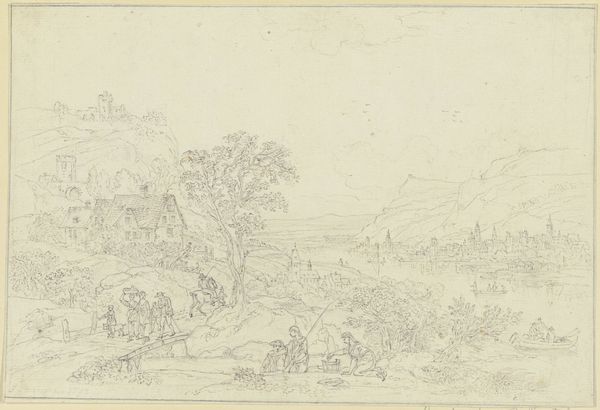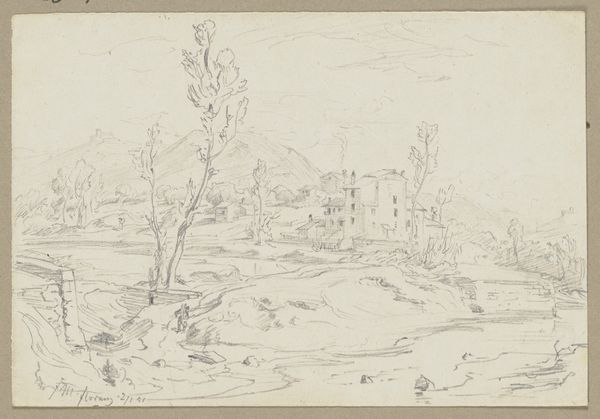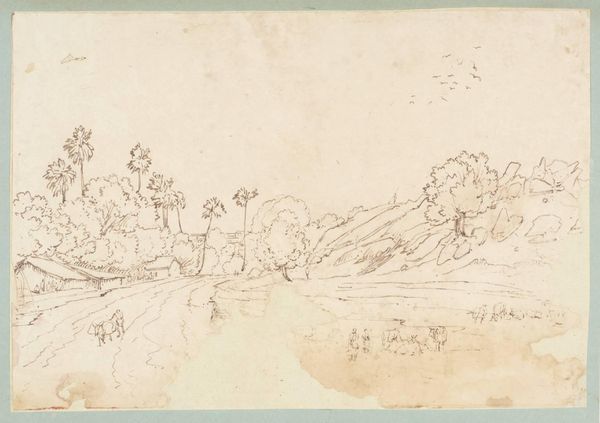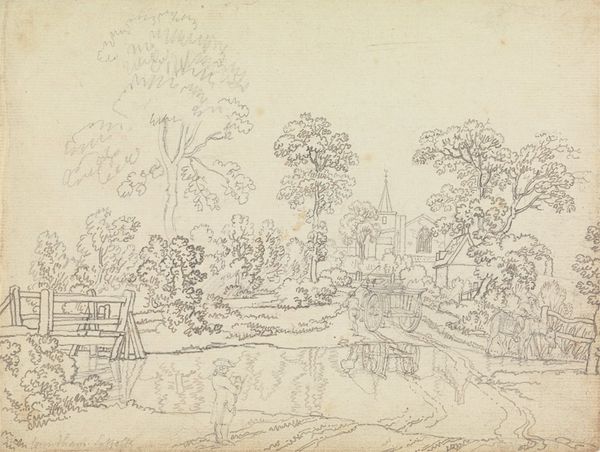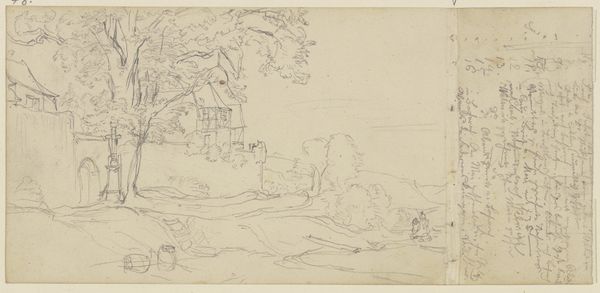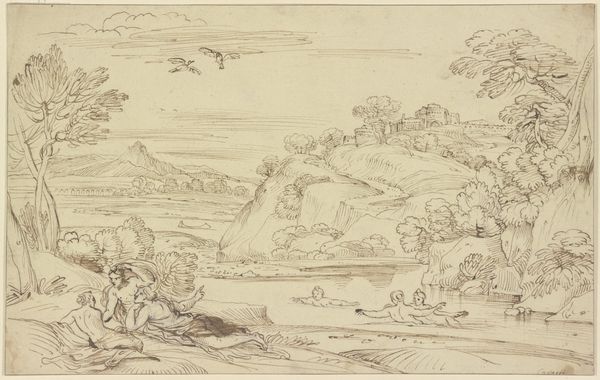
Copyright: Public Domain
Curator: Before us we have Friedrich Metz’s "Landscape near Florence," a pencil and graphite drawing on paper from 1830-1850, now residing here at the Städel Museum. Editor: There's an undeniable wistfulness about this piece. It’s faint, delicate lines convey a gentle stillness, like a memory barely grasped. The softness renders a tranquil aura to what is otherwise a common motif. Curator: I concur. Notice how the composition directs our gaze through a distinct structure of layered forms? The bridge serves as the primary anchor, with the eye subsequently ascending to the hilltop building, guided via delicate linear elements. There's also the interesting negative space throughout, especially in the clouds and foreground which add to the airiness. Editor: The bridge strikes me, not just structurally but as a symbolic element. Bridges signify connection, passage between realms. The covered entrance is intriguing as a subtle portal. In the foreground, a tree, perhaps representing growth and enduring life, even amongst what seems a landscape that's otherwise unyielding to being cultivated or used as a passage. Curator: Quite astute. The use of graphite offers a restricted tonal palette. But within these parameters, there's a surprising level of nuance. Notice the application, the subtle shading around the edifice that imbues it with presence. There's an almost classical methodology evident in its execution. Editor: It does lend the structure almost mythic overtones, as though it weren’t just any villa but potentially symbolic as something quite unique and central to the scene’s intended feeling, like a hidden knowledge or an idealized, far-off time. I’d love to read into the history of this place; it is likely a symbol, and it evokes a feeling of being far-removed from reality, from now. Curator: It showcases the enduring influence of Classical compositional elements, combined with Romantic-era sensibilities. Metz creates a balance between observational precision and evocative, poetic expression. Editor: Metz's quiet mastery resides, in my opinion, not merely in his technical ability, which we both acknowledge. Instead, it evokes something akin to emotional longing. Its significance to art history goes beyond simple record; rather, it explores fundamental human ideals: yearning and remembering a fabled existence. Curator: Indeed. Through an ostensibly subdued rendering, Metz manages to explore grand sentiments by exploiting a restricted, formal artistic language. Editor: Yes, and beyond form, through his symbol of passage. Thank you for highlighting the interesting forms.
Comments
No comments
Be the first to comment and join the conversation on the ultimate creative platform.
